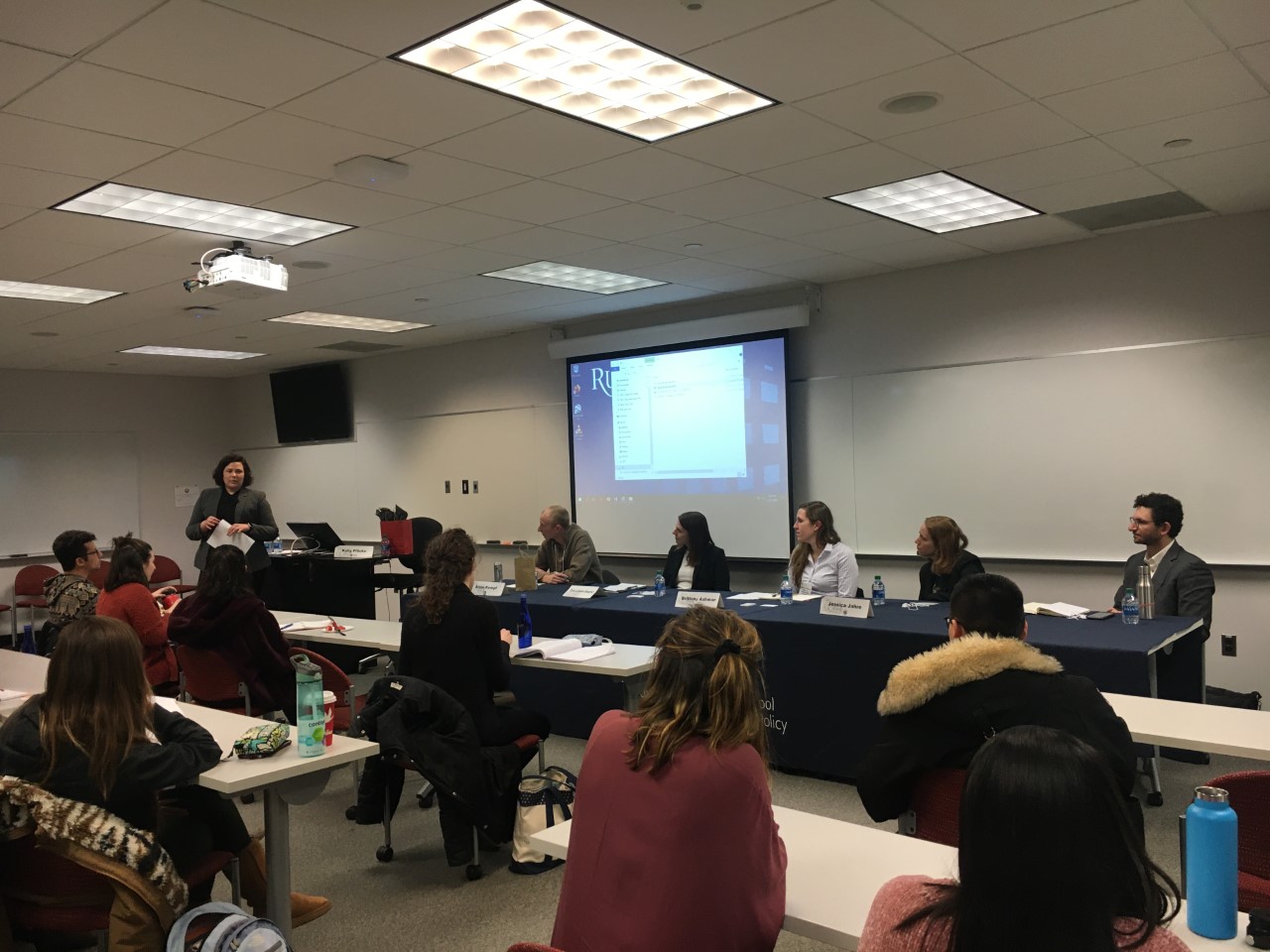by Cecille de Laurentis MPP/MCRP ’20
In late February, the Bloustein School hosted a panel discussion with several school alumni on careers in climate resilience and hazard mitigation. Kelly Pflicke MCRP ‘14, a Resiliency Specialist with FEMA, organized the event in order to provide students with guidance on what a career in hazard mitigation could look like: “what does [resilience] mean in terms of position, and how can I structure my studies?”
Author’s note: The concept of hazard mitigation feels all the more important at this moment as we navigate the coronavirus pandemic. Like climate change, the COVID-19 pandemic intersects with every aspect of our lives and has disproportionate impacts on marginalized populations. Its effects will certainly intersect with climate change as well. In the coming months and years, there will be ample opportunity for planners to play a role in building resilience and hazard mitigation capacity in communities.
Hazard mitigation planning is “really instinctive, really ancient, and we do it every day,” says Brian Kempf MCRP ’17, Planner/Principal for Sea Change Planning Services, LLC. To illustrate his point, Brian showed an example familiar to many in our generation: the moment in SpongeBob SquarePants when Patrick Star asks, in response to an imminent threat, “Why don’t we take Bikini Bottom and push it somewhere else?”

As Brian noted, hazard mitigation planning spans various fields and issues: economic development, social justice, and politics, to name a few. Careers can be made in the public, private, or nonprofit sectors. Brian’s career preparation tips include:
- Know the rules – what local, state, and federal laws, regulations, and policies define your work?
- Connect with professional development groups and volunteer your time.
- Develop a relationship with a mentor (ideally not someone you already work with!)
- Keep abreast of what other organizations are doing and read their plans.
The other alumni shared some of their particular experiences and insights about the highlights and challenges of their work, as well as their specific roles at various levels of government and other kinds of organizations. Alan Zaretsky MCRP ’ 14, Senior Waterfront Planner for the New York City Department of City Planning (DCP) emphasized the importance of communication with communities and tactfully addressing concerns. “I cannot overstate how important it is…at some point you’ll be standing in front of a community board or community meeting.” Zoe Linder-Baptie MPP/MCRP ’18, Resilience Projects Manager for the Wharton Risk Center at the University of Pennsylvania, also emphasized communication as a challenge, from a different angle – it can be a struggle to make sure relevant players talk to each other and connect, she said.
Jessica Jahre MCRP ’10, a planner for the New Jersey Department of Environmental Protection (DEP), emphasized that much of her work is about mundane details. “As planners, we want to be inspirational and aspirational, but so much is about the day-to-day work of governance.” She also pointed out that working on a more local level can be rewarding—municipalities have more control over the services they provide, and it’s easier to make the on-the-ground connection between plans and action. Brittany Ashman MCRP ’13, a planner for Michael Baker International, said her favorite thing about being a planner was getting to do extensive outreach on the local level.
The alumni also encouraged curiosity: “Don’t be afraid to ask questions,” said Zoe, noting that much of her job has to do with insurance, which was a learning curve for her. Jessica advised finding out “what the person next to you is doing, what the person across from you is doing,” and being as curious as possible.
The alumni, as well as Jeanne Herb, Executive Director of the school’s Environmental Analysis and Communications Group, discussed climate change as a key part of planning work. “Planners are science bridge builders,” said Jeanne, describing how planners can translate science into action. Social justice is also integral to hazard mitigation work: as Kelly pointed out, populations that are already overburdened are the most exposed to climate disasters. Structural racism, underinvestment, and then climate change marginalize these populations, Jeanne said. She discussed the many projects that both she and Bloustein School students have been a part of, projects that have helped to build New Jersey climate policy today.



